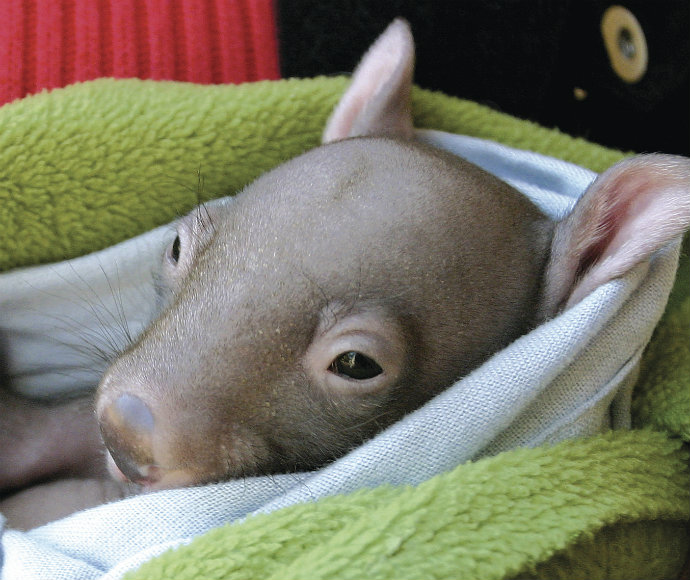More harm than good: plea for wildlife care to be left to trained experts
Authorities are reminding south coast locals they must not attempt to take care of an injured, sick or orphaned native animal, instead they must ensure the animal is given the correct medical treatment by a vet or qualified carer.
With winter well and truly upon us, there is often an increase in the number of animals hit on the road, particularly wombats and kangaroos. In the case of these animals, it's vital they receive the proper medical treatment as females may have joeys in their pouch.
While National Parks and Wildlife Service (NPWS) and WIRES acknowledge that people often have the best intentions when rescuing an animal in need, it is important to understand that treatment of a native animal is complex, and attempting to do so without proper expertise can often cause more harm than good.
Native animals have specific dietary and living requirements that only a qualified wildlife carer can effectively maintain. In situations where these requirements are not met, the animal can suffer irreversible harm. This not only affects the animal but also causes distress for the wildlife rescuer who must intervene when the situation becomes critical.
The best and easiest way people can help wildlife requiring assistance is to contact a veterinarian or local wildlife rehabilitation group, or the 24/7 WIRES Rescue Office on 1300 094 737.
For further information regarding what you should do if you find a sick, injured or orphaned animal please visit the NSW Government website.
Under the NSW Biodiversity Conservation Act 2016 it is illegal to possess or rehabilitate a native animal without authority. Only licensed wildlife rehabilitation providers or registered veterinarians can take a sick, injured or orphaned native animal into care.
If you would like to volunteer to rescue and rehabilitate native animals, you can join a wildlife rehabilitation group and complete the training required to care of sick or injured native animals.
Quotes attributable to Sapphire Coast Acting Area Manager Jol Briggs:
'It does not matter how well you are able to look after the family dog or cat, or if you nursed an animal back to health when you were younger, it is essential that any wounded or orphaned native animals be cared for by qualified professionals immediately.
'We appreciate that members of the public are only trying to help these animals, but without the proper training you will likely cause more harm than good to the animal. Please contact WIRES on the 24/7 help line, or a local wildlife care group, if you find an animal in need.'
Quotes attributable to WIRES CEO Leanne Taylor:
'Whilst WIRES understands that members of the public intend no harm when they attempt to raise an orphaned or injured native animal themselves, invariably the animal either doesn't survive due to an incorrect diet or becomes humanised so it can't fend for itself and is unable to be returned to the wild.
'Too often we have animals surrendered to WIRES once they become ill through being fed the wrong food and by then it can be too late to save them. In cases involving kangaroo and wombat joeys or emu chicks if the animals do manage to survive, they can develop into adults with problematic or aggressive behaviours.
'The best way for the community to help a native animal in need of human intervention is to contact their nearest wildlife rescue group or WIRES for advice and if needed, a trained and authorised wildlife carer can attend, and they will contain and transport the animal for immediate veterinarian assessment. It is then raised according to NPWS protocols for release back into the wild where it belongs.'
Pre-recorded news grabs available here: Dropbox.
